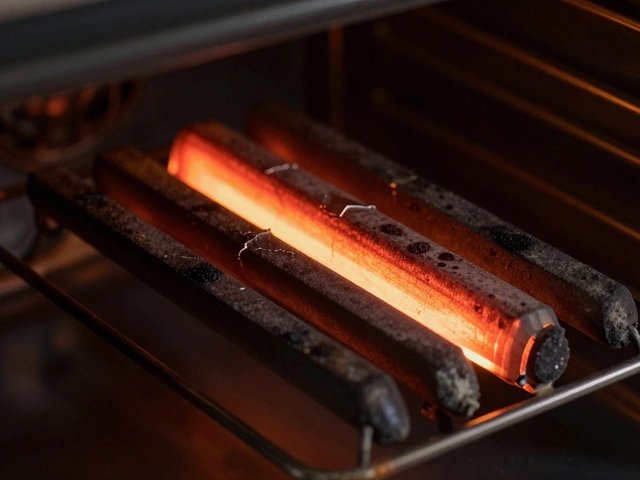Ever wonder why your neighbour’s microwave died after just a few years while yours still hums along? The truth is, a microwave’s life isn’t set in stone – it depends on how you use it, the brand, and a bit of luck. In this guide you’ll learn the typical lifespan of a microwave, the main culprits that shorten it, and easy habits that can add years to its service.
Most modern microwaves are built to survive 7‑10 years of regular use. Cheaper models may start showing problems after five years, while high‑end units can push past a decade. The biggest factors are:
When any of these issues pile up, you’ll notice the microwave taking longer to heat, strange noises, or the light flickering. Those are warning signs that the magnetron or wiring is on its way out.
Good news: you don’t need a mechanic to keep your microwave healthy. Follow these simple steps and you’ll probably squeeze a few extra years out of it.
If you notice a decline in performance despite these habits, it’s time to get a professional check. Sometimes a simple part swap – like a new turntable motor or a fresh door latch – can bring an aging microwave back to life.
Bottom line: a well‑maintained microwave can easily hit the ten‑year mark. Treat it like any other kitchen helper – clean it, protect it from power surges, and don’t push it beyond its limits – and it’ll keep heating your leftovers without a fuss.

When it comes to microwaves, understanding their lifespan is crucial for homeowners looking to make informed decisions about maintenance and replacement. This article delves into the essential factors that affect the longevity of microwaves, offering practical tips on extending their lifespan and recognizing when it's time for a new one. You'll learn about common signs of wear and tear, the importance of proper usage, and how regular servicing can enhance performance. Discover how to keep your microwave running efficiently and what to do when repairs are inevitable.

When your water heater only puts out cold water, it’s more than just annoying—it can point to real problems inside the unit. This article breaks down the most common reasons behind a water heater that refuses to warm up, from tripped breakers to busted heating elements. You’ll find tips on quick checks you can do at home before calling a pro, plus some unexpected facts about how water heaters really work. Knowing what’s wrong can save you from a frigid morning shower and a giant repair bill. Get ready to tackle that cold water problem with practical advice you can use right away.

Wondering how long it takes to swap out an old boiler for a new one? This article spells out exactly how much time you’ll need, what really affects the timeline, and offers practical tips to speed things up. Get the full breakdown, including what you can do before installation day and how to avoid surprises. If you want your heat and hot water back fast, this guide is for you. Find out what to expect from your boiler replacement and how to stay one step ahead.

Learn how to tell if your electric oven element is bad with simple visual checks and a multimeter test. Save time and money by diagnosing the issue yourself before calling a repair technician.

Experiencing no hot water in the shower can be frustrating, especially on cold mornings. This article provides practical solutions to diagnose and resolve common issues with your water heating system. From checking simple things like the thermostat to identifying more complex issues like a faulty heating element, you'll learn how to get back to enjoying a warm shower.

Your hot water stopped suddenly? This guide breaks down the top 7 causes - from low pressure to frozen pipes - and shows you how to fix them yourself before calling a plumber.